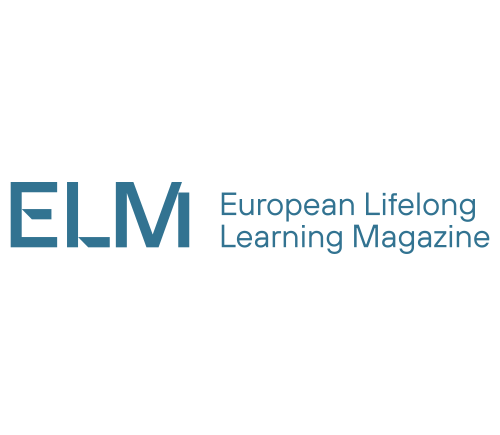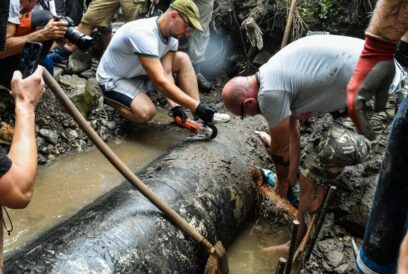

In Greece, strong families may replace those social networks that might be helpful for employment. Source: Wikimedia Introduction Youth unemployment in Greece has increased dramatically the last four years (2008-2012). From 1985–2008, the rate of unemployment was between 25%–35% and was steadily higher than the EU19 average (OECD, 2009, p.12). However, in 2012 the unemployment

In Greece, strong families may replace those social networks that might be helpful for employment. Source: Wikimedia
Introduction
Youth unemployment in Greece has increased dramatically the last four years (2008-2012). From 1985–2008, the rate of unemployment was between 25%–35% and was steadily higher than the EU19 average (OECD, 2009, p.12). However, in 2012 the unemployment rate for youth (15- to 29-years-old) skyrocketed to 42.7% (database of the Hellenic Statistical Authority, 2012), while according to Eurostat the rate of unemployed youth (15- to 24-years-old) was the highest in the EU.
Evidently the aggravation of the situation in Greece is caused by the economic crisis, which is reflected in the reduction of the gross domestic product (GDP), that began declining in 2008 and reached -6.9% in 2011. However, the fact that youth unemployment has always been very high, and that it has increased dramatically in the last few years, indicates that there are also structural reasons to be considered. One consideration is the structure of the Greek labor market (lack of flexibility, existence of numerous closed occupations, low-paid jobs for the youth, trial period of just two months – OECD, 2009), the lack of vocational orientation and employment promotion services (Karantinos, 2010, p.56), as well as the fact that the certification of non-formal and informal learning is still at an experimental level.
On the other hand, one of the most significant causes of youth unemployment may be the relationship between educational and vocational training, and employment. Education and training do not equip youth with the skills and attitudes required in the labor market—core skills, in particular. Core skills are identified as “general and transferable skills of non-technical area: teamwork, business sense, flexibility, thinking creatively and solving problems, learning fast and creatively”. Most core skills, according to a Recommendation of European Parliament and Council, “play a role in all key competences” that citizens require for employability, social inclusion, and active citizenship (European Communities, 2007, p.3).
Nevertheless, education and training cannot be considered solely accountable for the skills deficit. The role of the social system should also be investigated, especially the role of the family in the identity formation of young people, including the ability to identify choices and create a coherent course towards employment.
This article aims to contribute to this approach. I shall focus on the factors that form the connection between the educational and training system and unemployment in Greece, as well as the psychosocial factors that form youth’s identity.
The approach has limitations. On the one hand, relevant research in Greece is scarce. On the other hand, it is hard to define the connection between educational and training system, and unemployment (CEDEFOP, 2002); assessing the influence of psychosocial factors is even more complicated. However, I will attempt to make use of the existent literature and data resources to identify indications and form assumptions, which could trigger further research.
The connection between education and continuing vocational training, and youth unemployment
Attainment in education
The percentage of youth studying, in relation to the general population, is quite impressive. In 2008, the employment rate for 15- to 24-year-olds in Greece was 24% compared to 39% in the EU19 and 44% in the OECD on average, while the youth unemployment rate in Greece was not more than 8% higher than the OECD average (OECD, 2009, pp. 11, 39).
These data indicate that a large portion of Greek youth spends considerable time in education. A more detailed approach confirms this finding. In 2012, 48% of young individuals from 15- to 29-years-old and 45% of 20- to 25-years-old studied in the formal educational system (database of the Hellenic Statistical Authority, 2012).
Our study begins with the examination of enrolments. Education in Greece is compulsory until the end of the lower secondary cycle (9th year of studies). The school dropout rate is about 12% (OECD, 2009, p.3).
The upper secondary education level consists of:
- The three-year General Lyceums, which offer academic education, and Professional Lyceums which offer second-based vocational education with emphasis on theoretical knowledge. The Lyceums attract 75% of the students of the upper secondary education and are perceived by most of their pupils as preparation for university entry (OECD, 2009, p. 67). Rouseas and Vretakou (2008) showed that 80% of the students sit once for the university entry examination; 20% sit more than once.
- The two-year Vocational Schools offer school-based vocational training with emphasis on practical learning. Seven out of ten vocational school graduates also try to continue in higher education (OECD, 2009, p. 67).
- The three-year Apprenticeship Schools enroll less than 2% of youth in the labor force (OECD, 2009, p.60). These are the only schools in Greece that combine class-based learning with on-the-job training.
Subsequently, among those who finish their studies in Lyceums and Vocational Schools, only 5% enroll per year at the two-year post-secondary Institutes of (initial) Vocational Training, while about 75% enter higher education.
It should be noted that an additional 7% of the number of Greek students study abroad, a percentage that is significantly higher than the OECD average of just 1.9% (OECD, 2009, p. 69). Also remarkable is the fact that the tertiary studies are rarely related to work practice, while very few (one out of six) of students combine study and work (Koulaidis, 2003, p.30). Furthermore, Karamessini (2008) found that 60% of students take longer than four years to graduate.
In conclusion, a large proportion of Greek youth remains out of the labor force and prolongs the period of studies, which do not include a work-based component.
The effect of education on employment
Figure 1 shows that, contrary to most other OECD countries, the higher the qualification of young individuals in Greece, the more they face unemployment.
A closer examination of Figure 1 shows that, in 2007, some tendencies which existed ten years earlier are now established and inflated:
1)Youth with no qualifications are more likely to avoid unemployment than their more educated counterparts.
2) The number of unemployed youth who completed upper secondary school is very high: twice the OECD’s average.
3) The highest rate of unemployment is linked to tertiary- educated students and is more than double of the OECD’s average.
Attainment in continuing vocational training and its effect on employment
Continuing vocational training in Greece includes all the training programs aiming toward the development of knowledge, skills, and capabilities of the labor force. During the period from 2005–2007, the average number of participants per year was 67,000. Less than half of the participants were young individuals (Karalis, 2009, p.62), which means they did not reach 2% of the corresponding age group. This poor outcome should be attributed to the lack of opportunities for participation in vocational training programs (due to the fact that there is a limited number of such programs), but also to the aforementioned preference of Greek youth for non work-based studies within the formal education system framework.
On the other hand, relevant studies (Efstratoglou, 2009; EKEPIS, 2010) have shown that among the unemployed who have participated in continuing vocational training programs during the last years, only 14%–22% found an occupation, and of those, only half were occupied in working posts that were relevant to their training. Consequently, the participation in continuing vocational training programs doesn’t seem to reduce unemployment significantly.
An interpretative approach
The discrepancy between supply and demand of labor force
One of the essential reasons for the low effect of education and continuing vocational training on employment is that the large supply of qualified youth is not in concert with the labor market demand. As for the latter, research in 2001 in 6,228 Greek businesses (CEDEFOP, 2004) revealed the following tendencies: Most employment positions were offered to graduates of compulsory and upper secondary education. Only 15.8% of labor demand involved university graduates. These ratings are connected to the fact that the demand for this type of graduates in Greece is concentrated in the advanced sector of the economy, which is quite limited (Kikilias, 2009); 98% of the enterprises in this sector employ less than 10 employees (Karantinos, 2010, p.56).
The deficit of core skills
Nevertheless, research has shown (Karalis, 2009; Kikilias, 2009; Palios, 2003) that Greek businesses, regardless of their ability to offer job positions, are very reluctant when it comes to skills and capabilities with which youth is equipped by the educational/vocational training system. Employers believe that young individuals do not have the sector-specific skills related to the demands of various occupations and, even more so, do not have the appropriate core skills related to employability, such as teamwork, adaptability, problem-solving techniques, critical and creative thinking. This phenomenon has also occurred in many other EU countries (Flash Eurobarometer, 2010); however, it seems that it is especially severe in Greece. The research findings by Kikilias (2009) are quite enlightening: The Greek employers report an employability/core-skill deficit among graduates of Hellenic universities 2.5 times larger than among their counterparts of foreign universities.
The lack of core skills has been confirmed indirectly, but quite clearly, by a research study on Greek youth (Koulaidis, 2003). The research sample included pupils, students of vocational training organizations, university students, and workers/employees. It was revealed that few participants had a positive attitude towards core skills, such as appreciation of technology, curiosity to look for opportunities to learn, or interest in networking for social and professional purposes. Indicatively, it was found that only 42% had a relatively high interest for science and technology, while 41% showed a high interest for educational issues.
Furthermore, few students used alternative sources for studying besides those offered by their teachers. For example, only one in six students visited libraries more than four times a year. Finally, among the assets that were mentioned by the students considered as useful in finding a job, technological competence was ranked the 7th most important and the ability to work as a team was ranked last (12th).
Therefore, it seems that the deficit of core skills is a crucial structural element that is behind Greek youth unemployment: it functions as a barrier for them to meet the requirements of job positions, reduces their disposition to look for opportunities to learn, and leads to problematic assumptions about the employment-seeking process.
Next we will examine the reasons why youth in Greece lacks these skills.
The dysfunctions of the education and training system
Studies on Greek primary and secondary education (e.g., OECD, 2009; Kalogridi & Kagiavi, 2011) arrive at the conclusion that the system does not meet the demands of today’s uncertain and changeable economic and social context. Primary and secondary educational levels are teacher-oriented, and provide too much theoretical knowledge as opposed to practical learning. Additionally, these levels use low-quality teaching methods; teachers are poorly trained and show signs of disinterest and professional burnout.
As a result (as shown in Figure 2) Greek students perform significantly below the OECD and EU19 averages in reading, mathematics, and science.
The rather low performance is also a characteristic of tertiary level education (OECD, 2009). The same also applies to the system of continuing vocational training. Relative studies (Karalis, 2009; Kokkos, 2008; Palios, 2003) agree that training activities are fragmented and overlapping, while the quality of the programs and the designated bodies is generally low. It is indicative that the recent Report of the Secretariat for Life Long Learning (2012), the largest part of which refers to continuing vocational training, mentions: “It has been noted a significant ignorance or incomplete information of providers concerning the principles and specifications of Lifelong Learning […]. It has been noted that there is an incomplete or distorted perception of “Lifelong Learning”—mostly for public bodies and less from social partners—who don’t consider themselves as providers, but usually as simple dispatchers of funded programs” (p.78).
The psychosocial factors
The deficit of core skills in Greek youth, however, is not entirely due to the problematic function of education and training. Social scientists (e.g., Mouzelis, 2002; Voulgaris, 2008) have also shown the significant impact of the weakness of civil society, which in concert with the centralized and paternalistic function of the state apparatus, has resulted in the weakening of the disposition for active citizenship and social networking.
Additionally, psychosocial studies (Doumani, 1989; Kataki, 1998) have proven the fundamental influence of the Greek family on the formation of youths’ dispositions. For centuries, family has been the only stable reference point. During the long occupation period by the Ottoman Empire and, after that, until the 1980s, during ongoing crisis due to economic deprivation, political instability, as well as periods of war (civil and other), and dictatorial governance, Greeks were forced to develop significantly strong family ties in order to overcome the divisive situations. A collective assumption has been developed—that belonging to the family and depending on one another gives life meaning as well as a sense of protection.
This is also demonstrated in a European Social Survey (2003): To the question “How important is family life?” 85% of the Greek population marked the highest (10th) level of the scale, while the respective data for Spain was 69% and for the Netherlands 43%.
Within this framework, children are the central point of reference for parents. One of the ways of expressing this attitude is the unconditional support given from parents to their children in order for them to complete their studies, hoping this will mitigate the uncertainty of survival and/or increase the family social status. This could explain the phenomenon we have mentioned, meaning that a significantly large portion of Greek youth can study for a long period of time without simultaneously holding a job. It is also indicative that Greek households spend excessive amounts (approximately 2% of the GDP) for private educational activities of every kind, such as foreign language tutors, preparation courses for exams, artistic classes, etc. (Andritsaki, 2008).
Nevertheless, while Greek parents struggle for their children to acquire more skills, the more they fall into a vicious circle: There are more qualified youths than labor demands and their skills are not compatible with the requirements for the jobs offered. Meanwhile, the protection offered by the family entraps the development of the core skills of the youth: they do not acquire the ability to think critically and creatively in order to solve problems, to identify potential solutions and alternatives, or to make things function. Kataki (1998) argues that even the achievements at the educational level are not attributed to internal motivation and to a genuine relation to knowledge, but instead are considered to be a presupposition to ensure emotional security attained with parental approval.
Thus, while Greek families do whatever possible to achieve the best regarding their children’s prospects, they often do not manage to avoid the worst.
Epilogue: Insights from good practices
In conclusion, in order to radically reduce the unemployment rate of Greek youths in the long-term, structural transformations at many levels of the economic, societal, and cultural context need to be made. The educational and continuing vocational training system could contribute positively to the development of comprehensive programs oriented towards practical learning, in combination with systematic teacher training. Additionally, education and training should contribute to the development of core skills.
As far as core skill development, we can refer to three excellent programs that recently took place in Greece.
The program for training of teachers was organized by the Ministry of Education (2011). One of its primary goals—for the first time in relevant projects—was the development of core skills. The response of the participants was encouraging.
In 2012, the Ministry of Education defined the core skills as one of the basic components of the professional framework of adult educators. In practice, this means that adult educators should be able to contribute in the development of participants’ core skills.
The European Grundtvig Project ARTiT: Development of Innovative Methods of Training the Trainers, coordinated by the Hellenic Adult Education Association (2010-12), introduced a method that is focused on the development of the critical and creative ability of educators through the exploration of artworks and the correlation of the emerging ideas to the analysis of social and professional issues. At the first three stages of the method, the need to critically and creatively examine a topic is determined, the participants express their ideas about the topic and relevant critical questions are identified. During the last three stages, works of art are selected and used as triggers for the elaboration of the critical questions and this process results to reflection on the whole experience. The evaluation of the project (ARTiT, 2012) revealed that the outcomes were significant; therefore, it would be worth further disseminating the method in the context of the Old Continent.
These projects provide indications that the development of core skills through education and continuing training could contribute to the reinforcement of our ability to become more creative learners, job seekers, professionals, educators, parents, colleagues, citizens.
Read more:
Syriza may shake up Greek adult education (published January 2015)
References
Andritsaki, A. (2008). Inequality in Classroom. Eleftherotypia, 25/3/2008 [In Greek].
ARTiT. (2012). Evaluation Report. Retrieved from www.artit.eu.
CEDEFOP. (2002). Training and learning for competence. Luxembourg [In Greek].
CEDEFOP. (2004). Identifying skill needs. Overview of plans and actions for Greece. Luxembourg [In Greek].
Doumani, M. (1989). The Greek Mother. Athens: Kedros [In Greek].
Efstratoglou, K. (2009). Evaluation of Measure for Training the Unemployed. Athens: Centre of Planning and Economic Research [In Greek].
EKEPIS. (2010). Monitoring and Evaluation System for Vocational Training Centres. Athens [In Greek].
European Communities. (2007). Key Competences for Lifelong Learning: European Reference Framework. Belgium.
European Social Survey. (2003). Greece –Europe: Society- Politics –Values [In Greek].
Flash Eurobarometer. (2010). Employers’ perception of graduate employability. The Gallup Organisation.
Karalis, A. (Ed.) (2009). The Field of Continuing Vocational Training in the Lifelong Learning Framework of Greece. Athens: INE, EKEPIS [In Greek].
Kalogridi, S. & Kagiavi, M. (2011). The crisis in school environment: transforming emotions. Proceedings of the 9th International Conference on Transformative Learning. Retrieved from www.adulteduc.gr.
Karamessini, M.(2006). From education to paid employment: empirical investigation of the labor market integration of youth in Greece. In Social Cohesion and Development,1,67-84 [In Greek].
Karantinos, D. (2010). Participation in Lifelong Learning: Tendencies and Perspectives. In Kokkos, A. & Vergidis, D. (Eds.), Adult Education: International Approaches and Greek Paths. Athens:Metaichmio [In Greek].
Kataki, ?. (1998). The three identities of the Greek family. Athens: Greek Letters [In Greek].
Kikilias, E. (2009). Tertiary Education, Qualifications and Employment. National Centre for Social Research. Greece [In Greek].
Kokkos, A. (2008). Adult Education in Greece. Convergence, 2-3, 59-73.
Koulaidis, B. (Ed.) (2003). Investigation of Greek Youth Tendencies. Athens: Centre of Educational Studies [In Greek].
Mouzelis, N. (2002). From Change to Modernization. Athens: Themelio [In Greek].
OECD (2009). Jobs for Youth: Greece. Paris.
Palios, Z. (Ed.) (2003). Training and Employment. Athens: INE-GSEE [In Greek].
Rouseas, P.& Vretakou, V. (2008). Study on employment outcomes for graduates of upper-secondary education: TEE and Integrated Lyceum. Athens: Transition Observatory [In Greek].
Voulgaris, Y.(2008). Greece from the Political Changeover to Globalization. Athens:Polis [In Greek].





